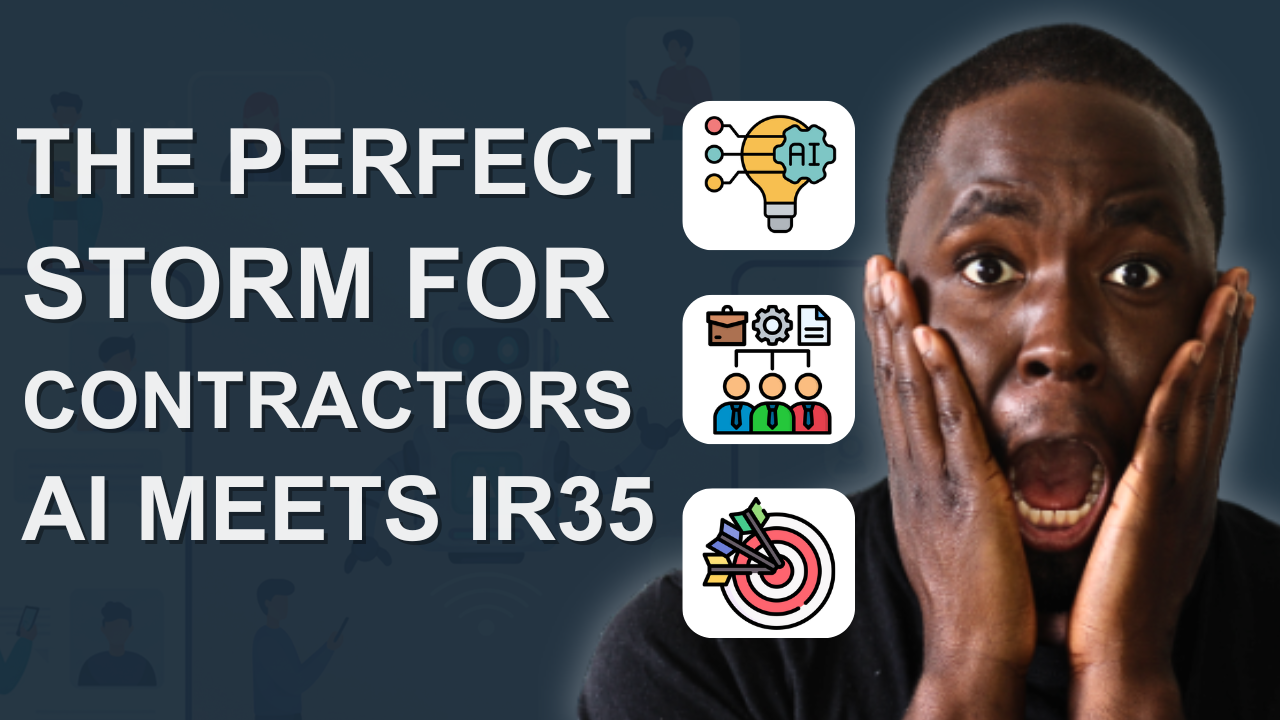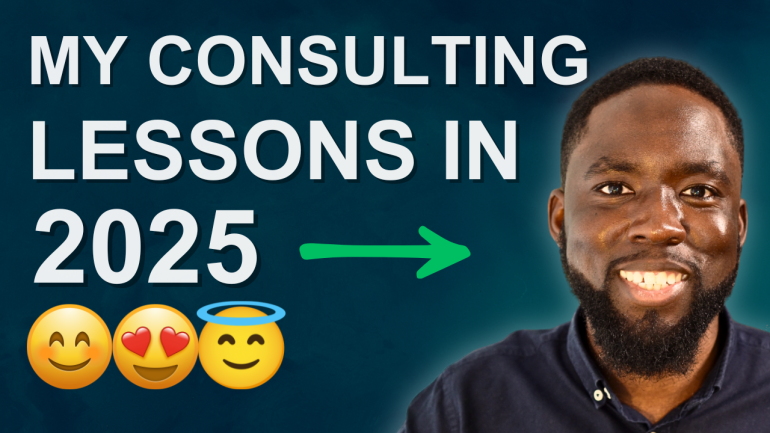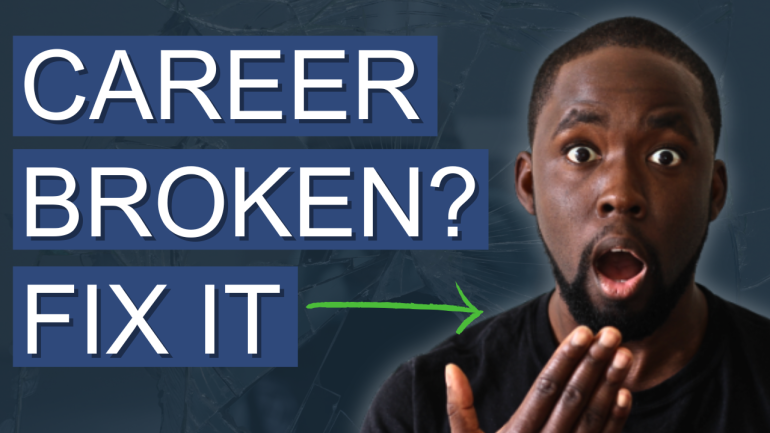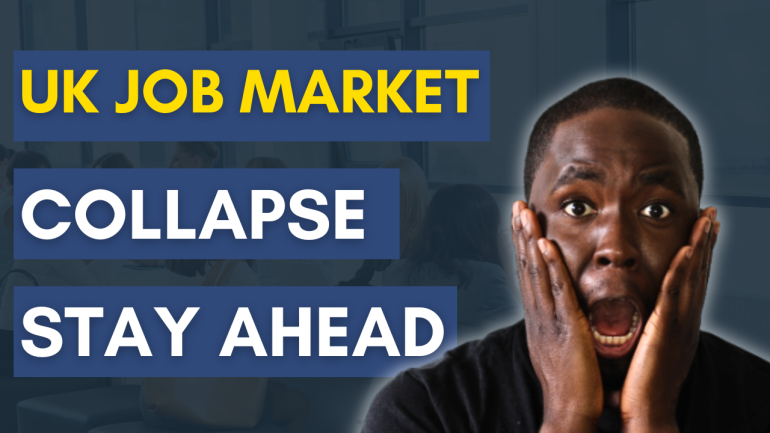Thriving in the Age of IR35 and AI: A Contractor’s Playbook for the Modern Market
“It’s not just about surviving market change, it’s about positioning yourself to lead through it.”
If you’ve been in the contracting world for a while, you’ll know the landscape is never static. Rules shift, budgets change, and technology continues to rewrite the game. The latest twin forces shaping our world? IR35 and AI.
For many, these feel like threats. For others, they’re catalysts for transformation. I’ve been on both sides of that fence, uncertain about my future and energised by the opportunities change brings.
In this article, I’m going to break down how to think and act strategically in an IR35 + AI environment, share real-life experiences from my own journey, and give you actionable ways to stay relevant, in-demand, and in control of your career.
1. Understand the Playing Field: IR35 in Real Terms
When IR35 reforms were rolled out, it shook the contracting market. The rules determine whether you’re taxed like an employee (inside IR35) or like a business (outside IR35).
On paper, it’s straightforward. In reality, it’s messy. Organisations, especially in the public sector, often default to placing contractors inside IR35 to avoid HMRC fines. This “blanket approach” means some people end up being taxed as employees while still carrying the risks and responsibilities of a contractor.
I’ve been in those conversations where the label mattered more than the value you brought. And yes, it can feel frustrating. But here’s the shift in mindset that’s kept me moving:
Don’t anchor your career on one classification. Inside or outside, your focus should be on building the kind of network, skills, and credibility that make you indispensable.
When I left my permanent role at NHS X in 2020 after months of stress, I stepped into contracting with my eyes wide open. My first contract at the Department of Health and Social Care wasn’t perfect, but it put me in rooms where I could demonstrate leadership, solve operational challenges, and develop processes that became the standard way of working. That visibility and the relationships built paid dividends later.
2. Leverage AI Before It Leverages You
AI isn’t coming to replace you outright, not yet. But it is here to replace tasks. And that means the professionals who know how to harness it will outperform those who don’t.
When I started producing content for my YouTube channel, I quickly realised that tools like ChatGPT weren’t just useful for generating ideas; they could speed up research, draft frameworks, and even help brainstorm client solutions.
The key is intentional use:
- Use AI to streamline admin (notes, summaries, reports).
- Use it to enhance creativity (brainstorming, strategy mapping).
- Use it to add value to clients (AI-powered solutions to their problems).
Action: Pick one recurring task this week and see how AI could help you do it faster or better. This isn’t about replacing your expertise; it’s about amplifying it.
3. Build a Professional Framework That Travels With You
In every role I’ve done, whether it was leading COVID logistics for the Northwest region or securing £2.5 million in funding for an NHS Data Platform, I’ve relied on one thing above all: a repeatable framework for delivering results.
That means having ready-to-use:
- Processes that standardise delivery.
- Templates that save time under pressure.
- Methodologies (like MSP, Agile, or proprietary systems) that give structure to chaos.
This approach saved me in 2021 when, mid-contract, I had to design a kit management process from scratch. That system ended up becoming the de facto way the department operated. It wasn’t luck, it was preparation.
Action: Audit your current toolkit. What processes, templates, and methods could you package so they’re ready to use in your next contract?
4. Create Multiple Streams of Opportunity
One of the hardest lessons I learned after leaving permanent employment is that contracts end, and sometimes without much notice. When I was told my recent contract wouldn’t be renewed, I had a choice: panic or pivot.
After a conversation with the Director of Operations, I secured an extension until March 2026. This was developed by being creative with my contract purchase order, and highlighting how much money had been underspent on my allocation. But the experience was a reminder: you can’t put all your eggs in one basket.
I’ve seen too many contractors build their lifestyle around one income stream. When that dries up, the pressure is immediate.
Instead, think like a portfolio professional:
- Offer consulting or advisory services.
- Create training or digital products in your niche.
- Build an engaged network through content and events.
I’ll be honest, it takes time to do this well; but it is so worth it believe me.
Action: Identify one additional way to earn from your expertise in the next 90 days.
5. Make Continuous Learning Non-Negotiable
If there’s one thing that has kept me relevant, it’s treating every role as a classroom. I journal my learnings, often by speaking into my phone and using AI tools to transcribe and categorise them.
Every challenge, whether it was dealing with an untrained manager early in my career, navigating governance gaps in a technical programme, or learning a new delivery method, is a chance to refine your skills and mindset.
Action: Start a “Lessons Learned” habit. For each project, record what worked, what didn’t, and how you’d improve it next time. Voicenotes AI is a great way to capture this information.
Bonus Tip: Relationships Are Your Real Currency
Every single opportunity I’ve had since leaving NHS X has come through relationships. Colleagues, recruiters, stakeholders, they’re the bridge between where you are and where you want to be.
When I was first introduced to contracting, it was because a colleague, Catrina, took the time to connect me with her network. Years later, that lesson still holds: people are more likely to open doors for you if they know you, trust you, and understand the value you bring.
Action: Reach out to three people in your network this week, not to pitch, but to reconnect.
Key Takeaways
- Inside or outside IR35, focus on your value, not your label.
- Use AI to multiply your impact, not replace your role.
- Carry your own professional delivery framework from contract to contract.
- Build multiple income streams for resilience.
- Learn from every experience and capture those lessons.
- Nurture relationships; they are your long-term safety net.
Final Thought:
The contracting market will continue to change. AI will keep evolving. Regulations will shift again. You can’t control those forces, but you can control how you prepare, position, and perform.
Question for you: How are you adapting your approach to thrive, not just survive, in this new era?
Understand, reach, and expand. Peace.







